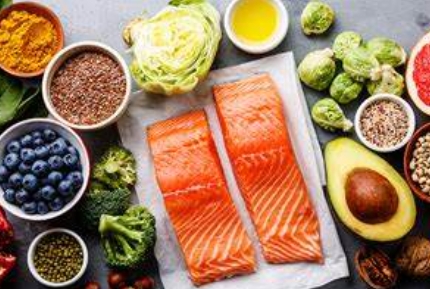The immune system is one of the body’s most complex and crucial defense mechanisms. It protects us from harmful invaders like viruses, bacteria, and other pathogens, helping to prevent illnesses and infections. While factors like exercise, sleep, and stress management all play a role in immune function, diet is one of the most influential aspects that directly impacts how well our immune system operates. A well-balanced, nutrient-rich diet provides the necessary building blocks to support immune cells, strengthen defenses, and maintain overall health.
The Connection Between Nutrition and Immunity
Our immune system requires a variety of vitamins, minerals, and antioxidants to function optimally. Key nutrients like vitamin C, vitamin D, zinc, and iron are essential for supporting the immune system and preventing immune-related deficiencies. A diet rich in these nutrients can significantly enhance the body’s ability to fight infections, recover from illness, and reduce inflammation.
Vitamin C, a potent antioxidant, is perhaps one of the most well-known vitamins when it comes to supporting the immune system. Found in citrus fruits like oranges, strawberries, and kiwi, vitamin C helps stimulate the production of white blood cells, which are crucial for fighting infections. It also helps reduce the duration of illnesses like the common cold and can reduce inflammation that contributes to chronic disease.
Vitamin D is another vital nutrient for immune health, as it plays a critical role in enhancing pathogen-fighting effects of immune cells. It helps regulate the immune response and can lower the risk of autoimmune diseases. Vitamin D is naturally synthesized by the body when the skin is exposed to sunlight, but it can also be found in foods like fatty fish, egg yolks, and fortified dairy products. People living in regions with limited sunlight may need to consider vitamin D supplements to maintain adequate levels.
Zinc is a mineral known for its role in activating T-cells, which are essential for immune defense. It is found in foods like meat, shellfish, legumes, seeds, and nuts. Zinc deficiency can weaken the immune system and increase susceptibility to infections. Additionally, iron helps oxygenate the body and is needed for the proper function of immune cells. Iron-rich foods like spinach, red meat, and lentils can ensure optimal immune support.
Antioxidants and Their Protective Role
Antioxidants play a significant role in immune health by neutralizing free radicals—unstable molecules that can cause cellular damage and contribute to chronic inflammation. A diet high in antioxidant-rich foods, such as colorful fruits and vegetables, can help combat this oxidative stress and promote a balanced immune response.
Foods rich in beta-carotene—like carrots, sweet potatoes, and spinach—help enhance immune function and protect the skin, which serves as the body’s first line of defense against harmful microbes. Similarly, flavonoids, found in berries, apples, onions, and green tea, are powerful antioxidants that protect the immune system and have anti-inflammatory effects.
Gut Health and Immunity
A significant portion of the immune system resides in the gut, making gut health an essential factor in overall immunity. The gut microbiome, which consists of trillions of bacteria, helps regulate immune responses and acts as a barrier against harmful pathogens. When the balance of good and bad bacteria in the gut is disrupted, the immune system can become compromised.
A fiber-rich diet can help maintain a healthy gut microbiome by feeding beneficial bacteria and promoting regular digestion. Foods like whole grains, fruits, vegetables, and legumes are high in dietary fiber, which acts as food for gut bacteria and helps maintain a healthy gut lining. Additionally, probiotics and prebiotics, found in fermented foods like yogurt, kimchi, and sauerkraut, can further support gut health and strengthen immunity.
The Role of Healthy Fats
Healthy fats, especially omega-3 fatty acids, are essential for regulating the immune system. These healthy fats, found in foods like fatty fish (salmon, mackerel, and sardines), flaxseeds, and walnuts, help reduce inflammation and promote the body’s natural anti-inflammatory responses. They can also improve immune cell function, making them crucial for optimal immune health.
In contrast, diets high in trans fats and saturated fats—commonly found in processed and fried foods—can promote inflammation and impair immune function. It is important to balance fat intake and prioritize healthy fat sources to support the immune system.
Hydration and Immune Function
Proper hydration is essential for maintaining the function of every system in the body, including the immune system. Water helps transport nutrients to cells, flush out toxins, and regulate body temperature. Dehydration can impair the body’s ability to fight off infections and make it more difficult for immune cells to function effectively.
Drinking adequate amounts of water throughout the day is essential for supporting immune health. Additionally, staying hydrated with nutrient-dense fluids such as herbal teas, soups, and water-rich fruits (e.g., cucumbers, watermelon) can provide both hydration and added immune support.
Stress and Immune Function
Chronic stress can weaken the immune system by increasing the production of cortisol, a hormone that can suppress immune responses when elevated over prolonged periods. Diet plays a crucial role in helping the body manage stress and support immune health.
Eating foods that support adrenal health, like vitamin B-rich foods (found in whole grains, leafy greens, and legumes) and magnesium-rich foods (such as nuts, seeds, and leafy greens), can help the body cope with stress and reduce its negative impact on the immune system. Reducing processed food consumption and incorporating stress-reducing nutrients into your diet can improve the body’s ability to respond to stress without compromising immune function.
Practical Tips for Supporting Immunity with Diet
To enhance immune function and improve overall health, consider these practical tips:
- Incorporate a variety of fruits and vegetables into your diet, focusing on those that are rich in vitamins, minerals, and antioxidants.
- Eat foods high in healthy fats, such as fatty fish, avocado, nuts, and seeds, to support immune function and reduce inflammation.
- Include protein-rich foods like lean meats, beans, legumes, and nuts to support the production of immune cells and enzymes.
- Prioritize fiber and fermented foods to promote gut health, which is essential for a strong immune system.
- Stay hydrated with water, herbal teas, and water-rich fruits and vegetables to support immune function.
- Minimize refined sugars and processed foods, which can promote inflammation and impair immune function.
In conclusion, a nutritious, well-balanced diet is one of the most powerful ways to support immune health. By providing the body with the vitamins, minerals, antioxidants, and healthy fats it needs, we can enhance the function of the immune system, reduce inflammation, and increase our ability to fight off infections. Consuming a variety of whole foods and adopting a healthy lifestyle can go a long way in keeping the immune system strong and resilient.




